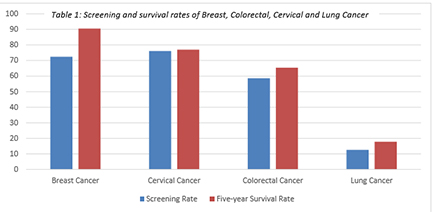Primary Care Providers and pulmonologists serve a crucial role identifying and referring patients to lung cancer screening programs. Eligible patients are 50-80 years old, former smoker who has quit in the last 15 years or an active smoker who has a pack year history of at least 20 years, currently shows no signs and symptoms of cancer, and hasn’t been treated with antibiotics for a respiratory infection in the last 12 weeks.
Northern Light Eastern Maine Medical Center’s lung cancer screening program uses an organized multidisciplinary approach to lung cancer screening including shared decision-making visit with the patient, smoking cessation counseling, utilization of established protocols for evaluating and treating concerning lesions identified on screening CTs, maintenance of a registry to follow the outcomes for all screened patients, and ongoing collaboration with referring provider about results and the next steps. Northern Light Eastern Maine Medical Center is a well-established, high volume center for thoracic malignancies with excellent results and an emphasis on patient safety. Northern Light Eastern Maine Medical Center intends to meet or exceed the institutional requirements set forward by CMS with regard to quality and reimbursement, including special training for interpreting radiologists and participation in a national registration database.
Shared Decision-Making
A four-step process for shared decision-making which includes exploring and comparing the possible benefits and harms of each option has been developed to help providers have meaningful dialogue about what matters most to a patient:
- Seek your patient’s participation in the decision-making process.
- Help your patient explore and compare the positional benefits and harms of lung cancer screenings and assess your patient’s level of understanding.
- Assess your patient’s values and preferences about lung cancer screening.
- Reach a decision about lung cancer screening with your patient..
In addition to a dedicated Lung Cancer Screening Program, a separate multidisciplinary board (Thoracic Oncology Conference or TOC) consisting of radiologists, medical oncologists, radiation oncologists, pulmonologists, pathologists and thoracic surgeons meets weekly to discuss complex thoracic oncology cases. The importance of a program navigator was recognized early in the development of our Lung Cancer Screening program and is available to be of assistance to you and your patient at all times.
Appropriateness for referral to a lung cancer screening program should be addressed at all wellness visits, same as mammograms and colonoscopies. With increased referrals in lung cancer screening we can increase 5-year survival rates.
